Polaris experts analyze data from the U.S. National Human Trafficking Hotline as well as other available sources of information and work closely with survivors to publish insightful and actionable research that shines a light on the shadowy world of human traffickers.
The Typology of Modern Slavery: Defining Sex and Labor Trafficking in the United States
In 2017, Polaris issued a report that for the first time ever broke human trafficking in the United States down from the broad categories of sex trafficking and labor trafficking into what it truly is – 25 distinct business models, each with their own specific and distinct business plans. The analysis is based on more than 32,000 cases reported to the U.S. National Human Trafficking Hotline between December 2007 and December 2016.
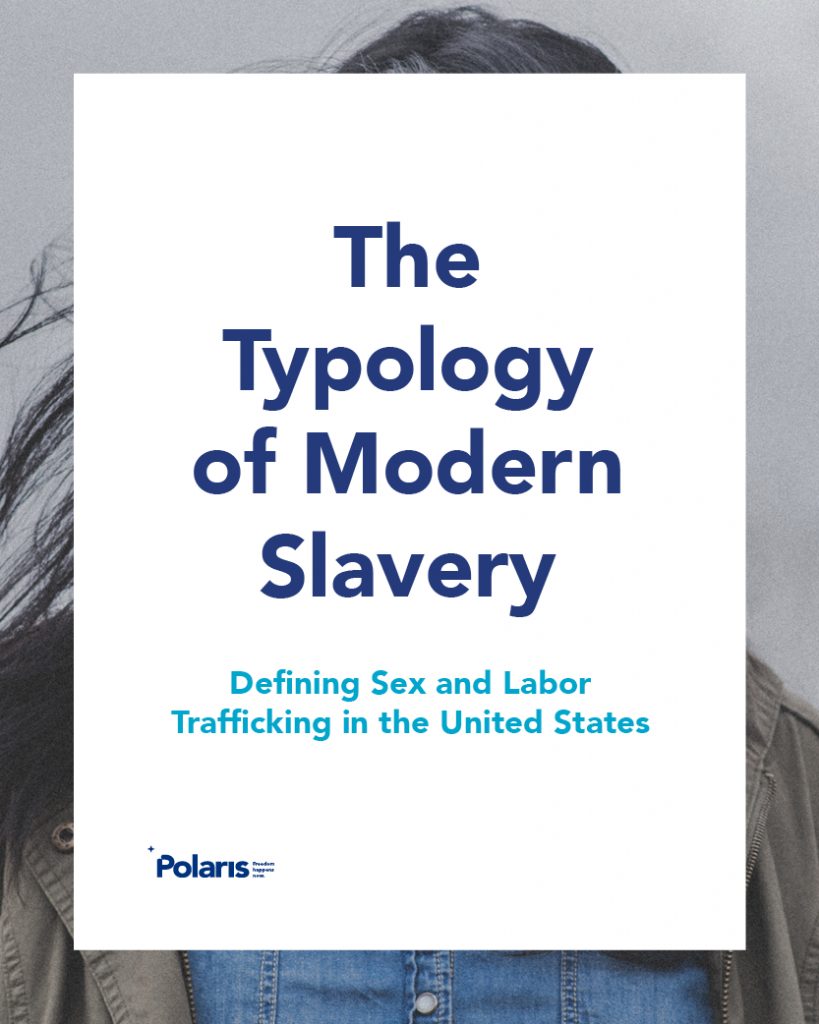
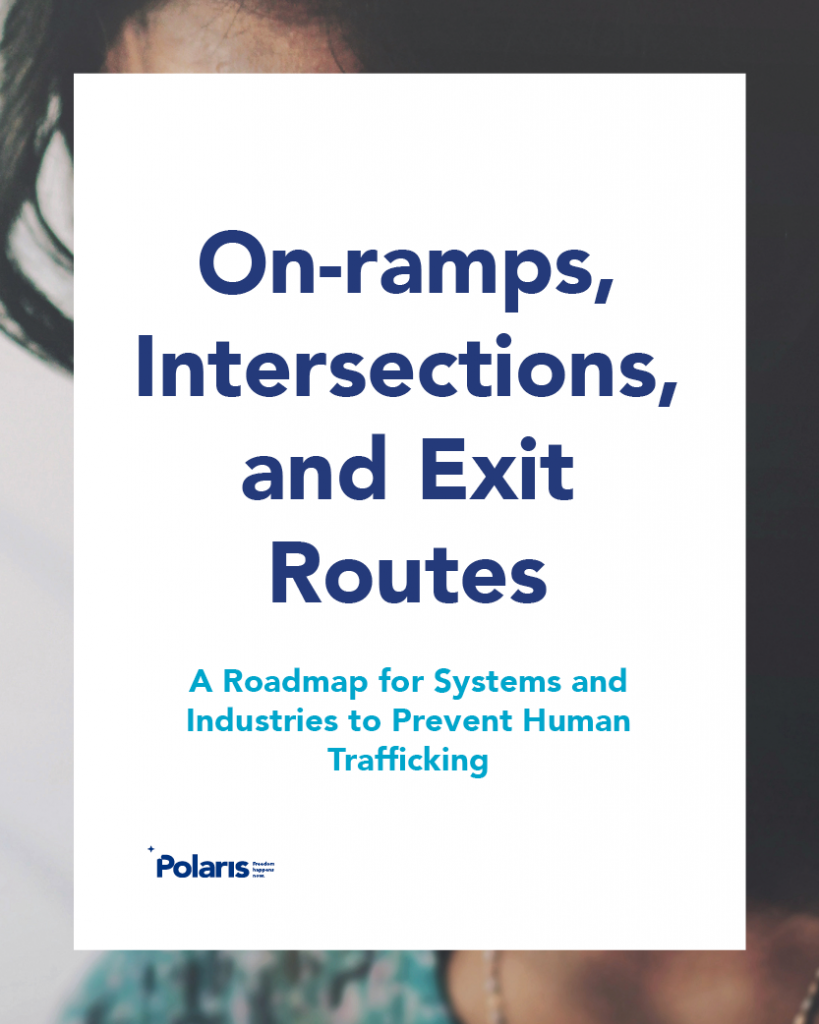
On-ramps, Intersections, and Exit Routes: A Roadmap for Systems and Industries to Prevent Human Trafficking
Like any businessperson, human traffickers depend on other businesses and systems to make their own operations work. From traffickers who use banks to store their earnings and buses to move their victims around, to the hotel rooms that are integral to the operations of some sex traffickers and the social media that are vital recruitment tools, this report highlights the way industries can make fundamental shifts to their systems to prevent, detect, and dismantle human trafficking.
Human Trafficking at Home: Labor Trafficking in the United States
In any given year, an estimated two million plus domestic workers are employed in the United States, caring for children, seniors and other loved ones, cleaning homes and in general, making it possible for many busy people and families to juggle the competing needs of their lives. In most cases, these arrangements benefit both the workers and their employers. But isolated working conditions, limited legal protections and vulnerabilities including poverty and immigration status mean that some domestic workers become victims of labor exploitation and labor trafficking.
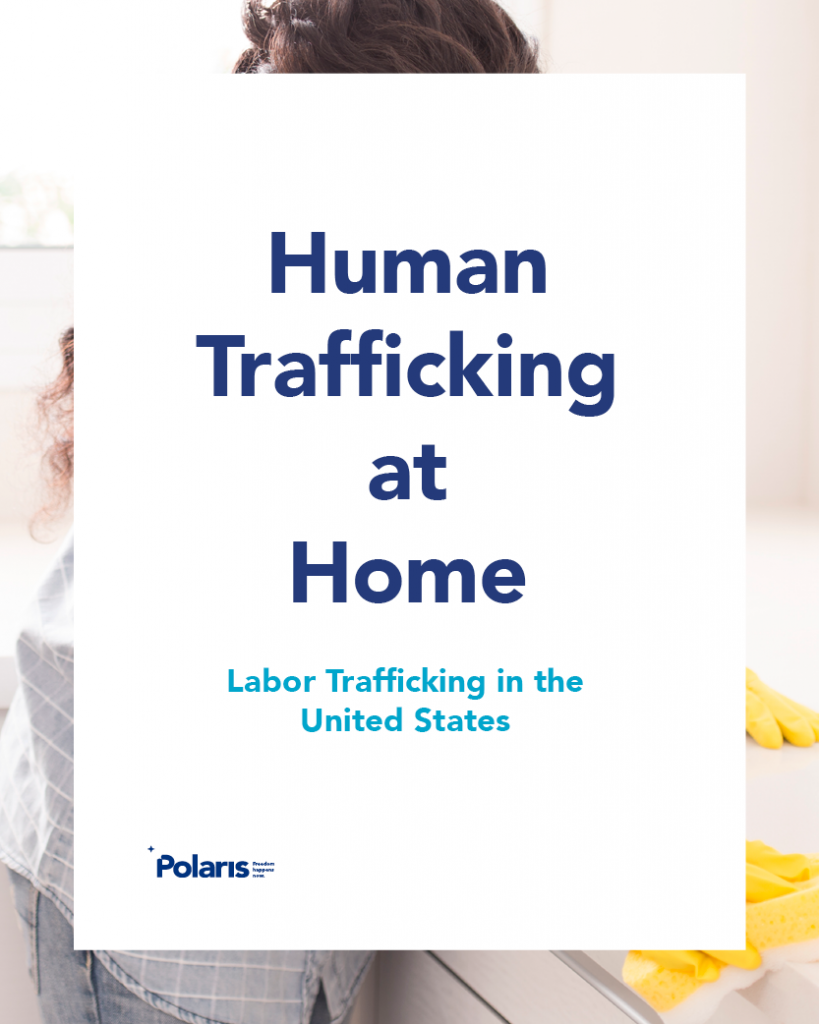
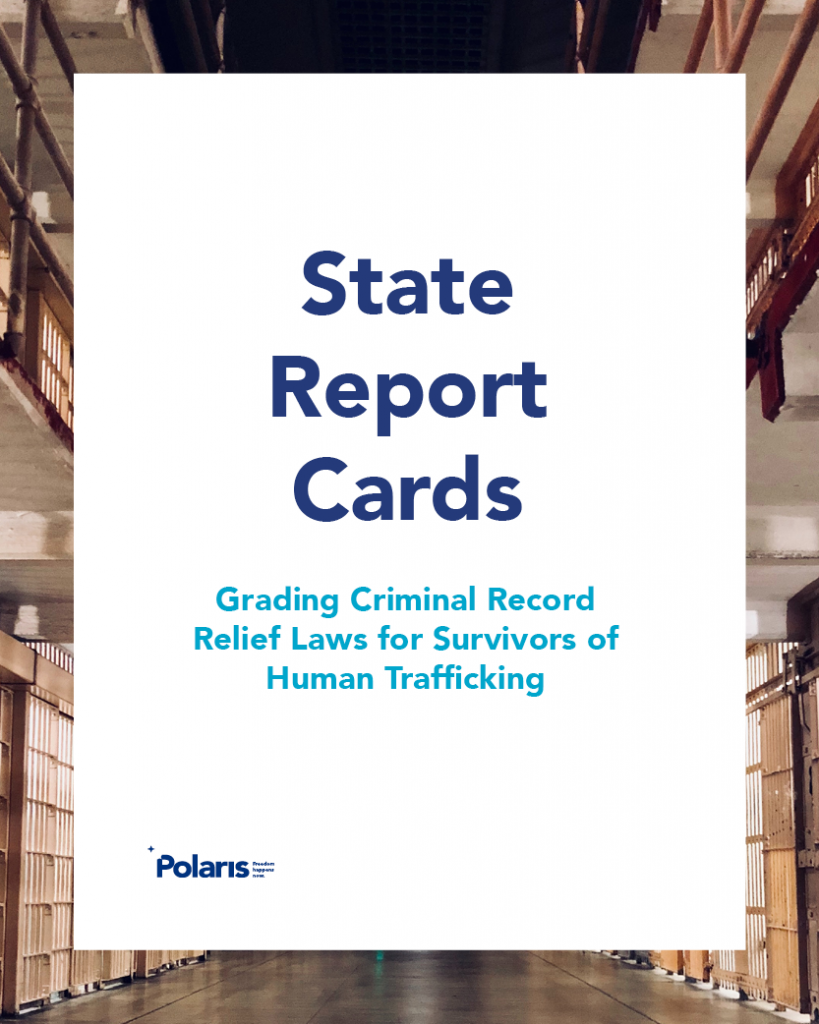
Criminal Record Relief Laws for Survivors of Human Trafficking
By its very definition, the crime of human trafficking involves people participating in some activity against their will. Often those activities are illegal – prostitution, selling drugs, shoplifting – and trafficking victims are arrested and charged with a crime. This tragically ironic scenario is extremely common. – A survey found that 91% of survivor respondents had a criminal record as a result of being trafficked. A criminal record, even an arrest without a conviction, often leads to doors being slammed shut. Its time to put laws in place that allow trafficking survivors to have their records cleared and move on with their lives.
Labor Trafficking on Specific Temporary Work Visas
The United States temporary work visa system is badly broken. From 2018-2020, Polaris identified some 15,886 victims of labor trafficking who held temporary visas at the time of their abuse. This report highlights the destructive practice of labor trafficking on temporary work visas, how the system is flawed, and the steps we need to take to fix it.

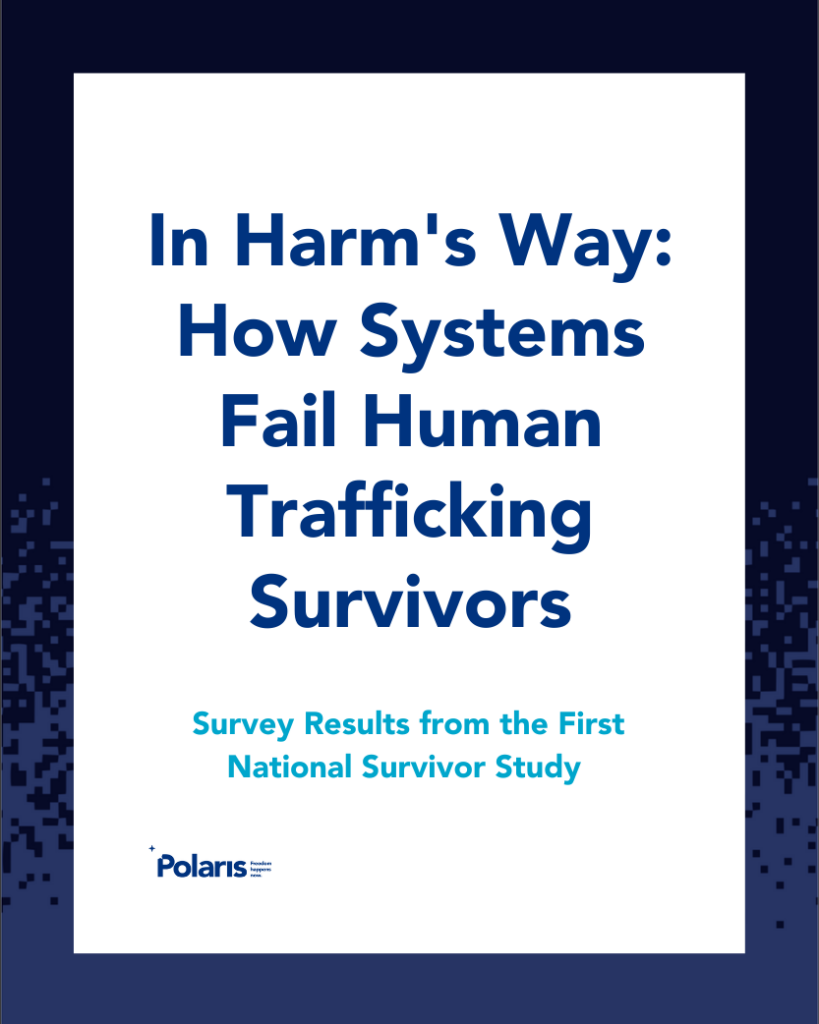
In Harm’s Way: How Systems Fail Human Trafficking Survivors
The National Survivor Survey is the largest and most significant effort to date to learn directly from survivors of sex and labor trafficking. This report uses the findings from this study to paint a detailed picture of the arc of trafficking – from the conditions that make people vulnerable, to barriers to healing when those same people break free after experiencing exploitation. In doing so, it offers a virtual roadmap for policymakers and allies seeking to make change.